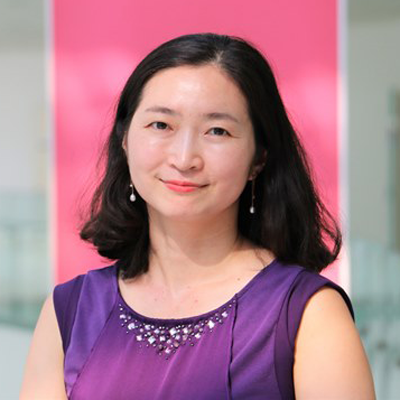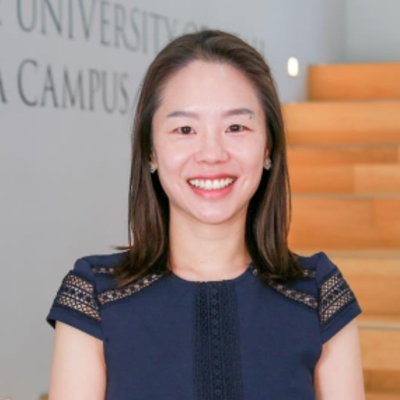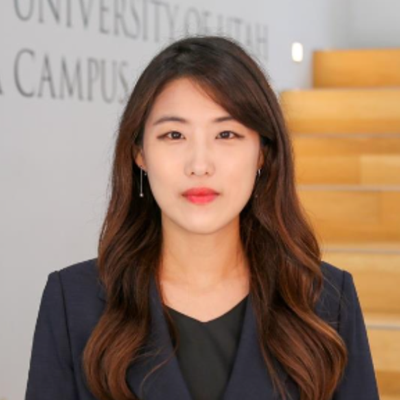Psychologists study human and animal behavior, seeking to understand how people and nonhuman animals function in their environments: through this, a psychologist ultimately wants to understand, predict, and resolve behavioral and psychological problems. If you are interested in how the mind works and functions in an effort to help people achieve and maintain mental health, consider studying psychology at the University of Utah.
The Psychology curriculum includes coursework in the following topics: psychology as a science and profession, cognition and behavior neuroscience, intergroup relations, development in infancy, emotions, human performance, personality, sexuality, health, among others. Through coursework, and hands-on experience through research, internships, peer advising, and/or teaching assisting, you will gain the knowledge base and critical thinking skills you need for success in post-college careers or graduate school.
The Student Experience
There are multiple ways to design your major to your interests in the psychology program. Students are encouraged to participate in experiential learning through independent and/or faculty-mentored projects as an undergrad. Options include research, internships, peer advising, or teaching assisting. Options for student organizations, which allow networking, leadership, and volunteer experience, are the Psychology Clubs and/or Psi Chi, the international psychology honor society in Salt Lake City, and etc.
Career Opportunities
Psychology graduates with a bachelors degree will enter into fields of education or human services, such as case managers, psychiatric technicians, coordinators, or teaching. However, there are additional pathways to careers in psychology such as human resources, industrial psychology, governmental careers, or management. Students who continue their education at the graduate level can become certified psychologists, counselors, therapists, and advisors, providing direct care.




Admission Requirements
Dept. of Psychology
- The Psychology Major requires an average of 12-13 Psychology courses.
- The major begins with General Psychology and Psychology as a Science and Profession. Students are given a significant amount of flexibility to take courses that match their interests and goals.
- To apply for the Psychology Major, students must make appointment with the Advising Office or apply online.
Required Courses
- PSY 1010 - General Psychology 4 Credits (PSY 1010 is a prerequisite for all 3000 level courses) *Or AP Test Score of 3 will receive 3 credits
- PSY 2010 - Psychology as a Science and a Profession 3 Credits (During or after PSY 1010)
- PSY 3000 - Statistical Methods in Psychology 4 Credits / fulfills QB or QI (Prerequisite: QA or equivalent & PSY 1010)
- PSY 3010 - Research Methods in Psychology 4 Credits / fulfills QI or CW (Prerequisite: PSY 1010 & 3000)
Electives
Complete at least 2 credits from the following types of courses:
Choose from among all psychology undergraduate course offerings to complete the 41 credit-hour requirement. This includes 4000-level Internships, Research Experience, Teaching Assisting and Peer Advising. Up to 6 hours of these classes can count toward the 41 credit-hour requirement.
Allied Hours
Complete 12 credit hours of which 6 must be upper division (courses numbered 3000 or above); waived with completion of a second major or minor. All courses must be completed with a grade of ‘C’ or better.
Total Credits: 41
Psychology Minor
Graduation Requirements
- A minimum of 16 hours in PSY courses are required and a minimum of 8 of these need to be upper-division.
- 6 hours must be taken at the U of U and 3 of those hours must be upper-division.
- In order to apply, students must visit with an undergraduate advisor or apply online. Requirements to declare include completion of at least 10 credits at the U of U, a 2.8 cumulative GPA at the time of declaration, and completion of PSY 1010: General Psychology with a grade of C or better.
- All courses must be completed with a C or better.
Minor Required Courses
- PSY 1010 - General Psychology 4 Credit(s)
- PSY 3000 - Statistical Methods in Psychology 4 Credit(s) *
*Note on PSY 3000: Statistical Methods in Psychology:
The following courses can be substituted to waive PSY 3000: SOC 3112, FCS 3210, ECON 3640, MATH 3070 and ED PS 6010. However, additional Psychology electives must be added to meet the minimum 16 psychology hours. Please see a Psychology Undergraduate Advisor if you are planning on using a statistics course from a department other than Psychology.
Electives
Choose from among all psychology undergraduate course offerings to complete the 16 credit-hour requirement. This includes 4000-level Internships, Research Experience and Teaching Assisting. Up to 2 hours of these classes can count toward the 16 credit-hour requirement.
Certificates
Human Factors Certificate

The Human Factors Certificate is open to all majors and complements many programs such as Psychology, Engineering, Nursing, Business, and more. The main purpose of the Human Factors field is to improve human interactions with software, equipment, and other individuals to enhance performance, increase safety, and improve user satisfaction. This certificate easily fits into a Psychology major.
To earn the Human Factors Certificate, students must maintain a cumulative 2.8 GPA, complete required courses and one elective, do research with a faculty mentor, and write a 5-page APA style thesis paper based on their research.
Students interested in applying for the Human Factors certificate will need to complete both a fall and spring semester at the SLC campus. This can be in a Fall --> Spring sequence or a Spring --> Fall sequence. Any students interested in the Human Factors certificate should contact the Psychology Advisor Kate Keddington as soon as possible.
Other Certificates & Academic Designation
The University of Utah provides a number of specialized certificates across a wide variety of disciplines. Earning one of these certificates may help to broaden your knowledge base, and hone a particular set of skills. Depending on your area of interest, these certificates are often a great compliment to a BA/BS in Psychology, and may help signal to employers your expertise in particular area of study. You may be required to stay longer than two semesters in SLC if you want to pursue any certificates that are not offered at the UAC.
For additional information on certificates offered by the University of Utah, please visit the Undergraduate Certificate Programs page.
Internship
Internships are the best way to gain experience in a particular field of work, and can be an important factor in creating opportunities for employment and graduate school. The Department of Psychology’s internship course (PSY 4810: Internships & Field Experience) may be taken for academic credit, but it is not required to complete an internship. Most internships are completed with an organization that is not part of the University of Utah. Internships may be found through the Department of Psychology, through Career and Internship Development Center, or on your own.
Career and Internship Development Center
Career Development
https://psych.utah.edu/undergraduate/careers-with-a-ba-bs-in-psychology.php
Transfer Credits to the U
The University of Utah accepts all academic credit with grades of D- and above from properly accredited institutions. The Admissions Office is responsible for evaluating a student's transfer work for applicability to general education requirements. Advisors from the Transfer Program can evaluate transfer work to see if it can be used to clear any Bachelor's Degree requirements. A student's major department will evaluate transfer work for applicability to major requirements. It is important to meet with your departmental advisor as soon as possible to discuss these requirements.
Petition for Course Substitution
Transfer students can file Petition for Course Substitution form to transfer credits that you have taken at the previous institution that might fulfill your major requirement. You will be required to submit course syllabus so that advising staff and faculty can review the course material for eligibility.
Research
Prof. Carina Pal
Her current research interests are speech understanding in challenging listening conditions, listening effort, hearing impairment, and listening effort in non-native listeners.
Prof. Mee-Kyoung Kwon
She has been working on developmental, cognitive, and clinical studies and her research interests include:
- Biomarkers of Autism Spectrum Disorder
- Development of face perception and own-race effect
- Computational modeling of human vision (based on eye-tracking data)
- Attention, memory, and executive functions in various populations including infants, toddlers, children with Autism or ADHD, and adults with schizophrenia as well as typically developing children and adults
- Children’s mathematics education in American and Asian children
Prof. Bo-Ram Kim
She recruits first-and second-year students every fall semester to learn a behavioral coding system of parent-child interactions. Students will learn to code parental sensitivity, intrusiveness, and delight during a 9-minute play interaction. One year (2 semester) minimum is required for training in this coding system.
Prof. Ha Na Yoo
Her research examines social development. Specifically, her research interests focus on two areas:
- Moral and social judgments & behavior
- Parent-child relationships, parent-child conflicts, parenting
Students who want to gain experience in social development research are welcome to join Prof. Yoo’s research section. Students will have experiences in all aspects of research, including assisting in research design, participating in data collection/preparation/coding, and learning about developmental research methods and social and moral development research.
Want to Declare a Major?
If you have not yet declared the Psychology major, please contact the Psychology advisor, Heidi Kim. Major/minor declaration is important to determine catalog year and is required to graduate.
Meet Your Faculty
Carina Pals
ProfessorMee Kyoung Kwan, Ph.D.
ProfessorBo-Ram Kim, Ph.D.
ProfessorHa Na Yoo, Ph.D.
Professor
Book an Appointment
Your academic advisor can provide invaluable assistance with major/minor declaration, courses and registration, research opportunities, internships, and more. Book an appointment through the button below if you need any help with your major.








